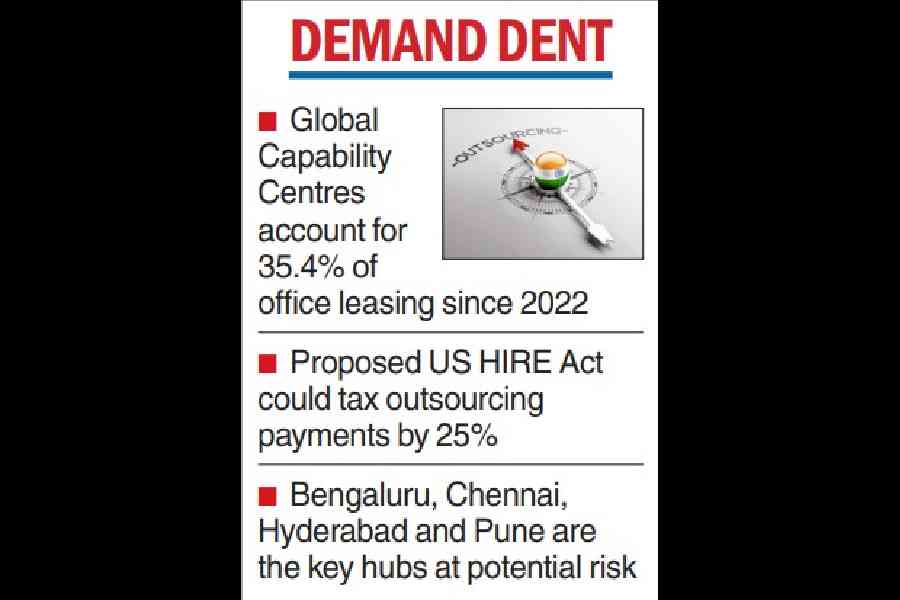A hit on outsourcing to India in the wake of the proposed HIRE Act could dent demand for office space in the country as global capabilities centres (GCCs), the back offices of multinational corporations, account for one-third of top-grade commercial real estate.
Industry sources say at least a third of the GCC demand comes from US-based companies. A 25 per cent tax could force them to rethink business strategy, making them cautious about outsourcing to India and expanding operations.
According to a research report published by international property consultancy JLL, GCCs accounted for 35.4 per cent of 230 million square feet of office space leased out post-Covid from 2022.
An official with a leading consultancy who works with many Fortune 500 clients, including those based out of the US, argued the HIRE Act is unlikely to be passed in its present form. “I am aware of many companies who are going to challenge the law in the court,” said the official.
To be sure, if passed in the present form, the proposed HIRE Act will be a double whammy to the Indian ecosystem. The H1B visa fee hikes will make onshoring (sending people to work at the client’s site) costly. If the clients re-purpose their business strategy to offshore (send work to India), it would be taxed at 25 per cent.
While legal challenges may crop up, the economic cost to the US companies could be self-defeating. Office space rent in Chicago, Washington or New York would be 4-7 times more than the average in India. Moreover, the employee compensation cost would be 4-5 times that in India.
“It would be a massive hit to the margins of the clients. Talent acquisition will be costly and difficult because there aren’t too many. Plus, the real estate cost will be prohibitive,” a consultant who works with US clients observed.
However, a slowdown in outsourcing could result in dampening office space demand temporarily. Bengaluru is the top GCC destination in India, accounting for 40 per cent of GCC leases from 2022. Chennai, Hyderabad, Pune and Delhi-NCR have also emerged as preferred destinations for GCCs.
Apart from tech, GCCs have diversified into other sectors such as engineering, R&D and BFSI. Even though technology accounted for 26.5 per cent of all activity from 2022 to mid-2025, ER&D and BFSI accounted for 51.5 per cent of GCC activities from 2024 onwards, according to JLL.










